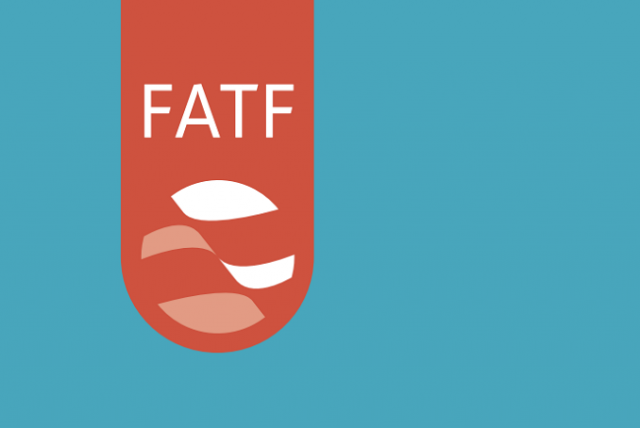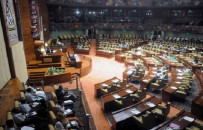Pakistan has taken steps towards improving AML, CFT: FATF
FATF says Islamabad failed to demonstrate a proper understanding of terror finance risks posed militant groups

FATF. PHOTO: FATF
Pakistan had been hoping to get off a "grey list" of nations with inadequate controls over such activities. While there are no direct legal implications, it brings extra scrutiny from regulators and financial institutions that can chill trade and investment.
During the meet, India had pressed for Pakistan to be kept on the terrorism financing watchlist following an attack in occupied Kashmir that was reportedly claimed by JeM.
The global body said that since June 2018, Pakistan had taken steps to improve its AML and CFT regime including operationalising the integrated database for its currency declaration regime.
It noted that Pakistan had revised its terror financing (TF) risk assessment but it "did not demonstrate a proper understanding of the TF risks posed by Da’esh, al Qaeda, Jamat-ut-Dawa (JuD), Falah-e- Insaniat Foundation (FiF), Lashkar-e-Taiba (LeT), Jaish-e-Mohammed (JeM), Haqqani Network and persons affiliated with the Taliban".
The federal government has moved to ban JuD and FiF on Thursday during a high-powered National Security Committee (NSC) meeting chaired by Prime Minister Imran Khan.
JuD, FIF charities banned as govt seeks to rout extremism
FATF, however, maintained that Pakistan needed to show sanctions were being applied in cases of money laundering and terrorism financing, demonstrate better cooperation between authorities identifying illegal money flows, and enhance support for prosecutors, among other measures.
"Given the limited progress on action plan items due in January 2019, the FATF urges Pakistan to swiftly complete its action plan, particularly those with timelines of May 2019," it concluded.
The Paris-based task force laid out 10-point agenda for Pakistan which included:
(1) adequately demonstrating its proper understanding of the TF risks posed by the terrorist groups above, and conducting supervision on a risk-sensitive basis;
(2) demonstrating that remedial actions and sanctions are applied in cases of AML/CFT violations, and that these actions have an effect on AML/CFT compliance by financial institutions;
(3) demonstrating that competent authorities are cooperating and taking action to identify and take enforcement action against illegal money or value transfer services (MVTS);
(4) demonstrating that authorities are identifying cash couriers and enforcing controls on illicit movement of currency and understanding the risk of cash couriers being used for TF;
(5) improving inter-agency coordination including between provincial and federal authorities on combating TF risks;
(6) demonstrating that law enforcement agencies (LEAs) are identifying and investigating the widest range of TF activity and that TF investigations and prosecutions target designated persons and entities, and persons and entities acting on behalf or at the direction of the designated persons or entities;
(7) demonstrating that TF prosecutions result in effective, proportionate and dissuasive sanctions and enhancing the capacity and support for prosecutors and the judiciary;
(8) demonstrating effective implementation of targeted financial sanctions (supported by a comprehensive legal obligation) against all 1267 and 1373 designated terrorists and those acting for or on their behalf, including preventing the raising and moving of funds, identifying and freezing assets (movable and immovable), and prohibiting access to funds and financial services;
(9) demonstrating enforcement against TFS violations including administrative and criminal penalties and provincial and federal authorities cooperating on enforcement cases;
(10) demonstrating that facilities and services owned or controlled by designated person are deprived of their resources and the usage of the resources.



















COMMENTS
Comments are moderated and generally will be posted if they are on-topic and not abusive.
For more information, please see our Comments FAQ